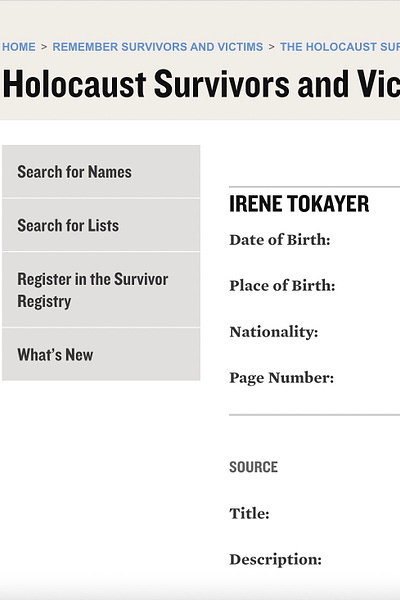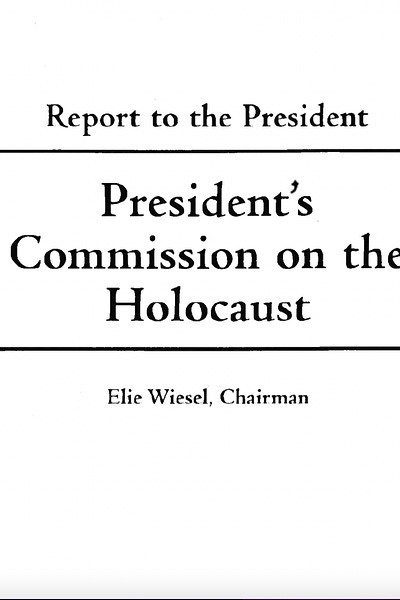Sucharit Bhakdi. How a humble man still is treated as a pawn by German State Prosecutors
Founder of Doctors For Covid Ethics meets a decent judge - and a vicious State Prosecutor who is still after him. A report from the courtroom.
FOR AN UPDATE CHECK THE BOTTOM OF THIS WRITE UP
First, the good news: Professor Dr. Sucharit Bhakdi, who has been accused of “Inciting the Masses” and “Trivializing the Holocaust”, was cleared of those charges and found “Not Guilty” by Judge Dr. Malte Grundmann at the county court in Plön. Bhakdi, a calm, moderate and humble scientist and doctor was greeted with cheers and salutations by hundreds of followers who had to wait for almost nine hours outside of the small courthouse.

Not so good, but rather troubling is the fact that Professor Bhakdi seems to be a pawn at the hands of German State Prosecutors. After the verdict was read and the hearing ended, the Chief Public Prosecutor issued a statement that the decision would be appealed. Why, if for the second time an allegation against a law-abiding, respected retired Professor had been struck down, would a Chief Public Prosecutor continue to pursue “a perversely construed charge”? This is how Holocaust Survivor Irène Tokayer, who in 1927 was born in Germany, phrased the charge in a statement on behalf of Professor Bhakdi ahead of the trial (translated transcription PDF below).
Due to a law that dates back to days of the monarchical rule of the Kaiser, Public Prosecutors are expected to follow instructions by Governments throughout the Federal Republic of Germany. It is of note in this respect that the Chief Prosecutor of the State of Schleswig Holstein had taken over the case after a first charge against Bhakdi was dropped on the grounds of having no merits according to the Public Prosecutor at the county court in Kiel, Schleswig-Holstein’s capital. Silke Füssinger, who at the Chief Public Prosecutor’s office of Schleswig-Holstein had been in charge of “political crime” for a number of years already, was named Commissioner for Antisemitism for the Chief Public Prosecutor’s office, effective in December of 2021, just weeks after the charges against Professor Bhakdi were dropped. A press release dated November 29 stated that by then the Chief Public Prosecutor had decided to take over the proceedings “in view of the importance of consistently prosecuting anti-Semitic crimes.”
Sounds political? Just wait, there is more.
During the nearly nine hours which observers spent within the courtroom during the hearing (those who vacated their seats during one of a number of adjournments lost them to one of several hundred people waiting outside, so hardly anyone did) it became quite clear that Professor Bhakdi was indeed a pawn in a game with much higher stakes. “Bhakdi, Defense Counsel Martin Schwab explained, had not incited, not even insulted anyone or harmed Human dignity. “He has explained what the shots are doing! This is not about anti-Semitism”, said Schwab in his final plea, “it is about the fear of those who are responsible for the crimes committed during that false pandemic. They fear that Professor Bhakdi might be called as witness for the prosecution in the tribunal against them once all of this is over.”
“This is not about anti-Semitism, it is about the fear of those who are responsible for the crimes committed during that false pandemic. They fear that Professor Bhakdi might be called as witness for the prosecution in the tribunal against them once all of this is over.”
— Professor Martin Schwab, Defense Counsel to Sucharit Bhakdi
Sven Lausen, the second of Bhakdi’s attorneys, elaborated: “This was a vicious charge. Very vicious! Obviously something very different was on the State Prosecutor’s mind than an assessment of arguments in criminal law.” This became indeed shockingly obvious right at the start of the hearing, when Lausen moved to stop the Prosecutor laying out the case by reading the indictment in public. Had this move been successful, it would have ended the case altogether, and it was based on very fair reasoning: The Prosecutor had issued the indictment on May 1st of 2022, at a time when she had not even vetted all evidence. As Lausen explained, the main piece of evidence, a video interview of some 90 minutes duration from which the complaint had been quoting, did not arrive in the prosecutor’s mailbox until 17 days later, May 17, 2022. Lausen: “Bhakdi was to be made an example of, which is why it did not matter what the context or the essence of the interview in fact was.”
Füssinger, whom according to a report as early as 2008 in DER SPIEGEL a judge had already caught to have been “squeezing the facts” to the disadvantage of a member of an ethnic minority, would have had the duty by law to investigate all evidence, including that which is exonerating the defendant. Which she didn’t, said Bhakdi’s attorney Lausen. “All you did was spread accusations without introducing a single piece of evidence to prove them. Which is why I am of the opinion that all of which you say is pure fabrication! There were two complaints after the case was dropped in Kiel, and, all of a sudden, a closed case became a political case!”
That Lausen is spot-on with his perception becomes even more of a probability by the statement by the Central Council of Jews in Germany, whose president Josef Schuster is reported to have said:
"The court is legitimizing pure anti-Semitism here," he said. By interpreting the term "people of the Jews" as supposed criticism of the Israeli government, he said, the court is following the narrative that holds every Jew everywhere responsible for the activities of the state of Israel. To hear this attitude from a German court as a basis for argument "is nothing less than scandalous," Schuster complained. He also criticized the court for seeing Bhakdi's trivialization of the Holocaust beyond doubt - but for placing freedom of expression higher in an election campaign speech. "For the umpteenth time, I feel compelled to point out that anti-Semitism is not an opinion," Schuster said.
Schuster, who was born in 1954, has made this statement even though he has not been in Plön, and can not yet be in possession of the written judgement (which is to be written up by Judge Grundmann after the trial). Had he been present, Mr. Schuster would have heard the Judge explain in great detail that in order to find someone guilty of anti-Semitism, a number of preconditions would have to be met. Among these, said Grundmann, are not just words, but also context and an intent to disturb the public peace. This intent to violate a Good of Law (Rechtsgutverletzung) has to be obvious, which it was not. Instead, Grundmann also confirmed that Bhakdi continuously has been calling for constructively coming together and debate.
Mr Schuster should take note that his perception of the case is in direct opposition to that of First-Generation-Shoah-Survivors such as Irène Tokayer, who points out that what Bhakdi did was perfectly in line with the President’s Commission Report on the Holocaust (PDF below).
“Today there are still some of us who survived the camps or escaped the Gestapo. This report refers to them as the "messengers and guardians of the secrets entrusted to them by the dead." I share the report's concern, a concern that is obvious to anyone who listens to Sucharit Bhakdi's interview with an open mind and an open heart”
— Irène Tokayer, Holocaust Survivor
UPDATE MAY 25, 6:51 pm CEST:
It must make unbiased viewers suspicious that the attorney general explains in the above mentioned press release that it is "without any basis that the assumption implied in a newspaper report that the examination of the decision to close the case (emphasis added, UA) by the Kiel public prosecutor's office is connected with the succession to the position of attorney general Zepter". This the press report had not at all maintained, but that "the decision to take over the case" was connected with the naming of the successor to the position of the Chief Public Prosecutor in the meantime as that of the head of the Kiel Public Prosecutor's Office, who herself was responsible for the discontinuation of the case against Professor Bhakdi by one of her subordinate prosecutors in Kiel. The suspicion is therefore obvious that the outgoing Chief Public Prosecutor Zepter wanted to prevent that incoming Chief Public Prosecutor from also being able to influence the "examination of the discontinuation decision" in her intended new role as designated Chief Public Prosecutor.
For this purpose, Zepter obviously had hardly any other option than not to wait for the examination of the discontinuation decision in the first place. This decision had been substantiated in detail by the responsible Kiel prosecutor in a legal memorandum of several pages and, as such, would have had to be examined (and refuted) in detail in order to overturn the Kiel decision. Instead, the "examination of the factual and legal situation" by taking over the case itself would kill two birds with one stone: For this "dupe" of his designated successor would not only open the way to muzzle a prominent critic in Sucharit Bhakdi, but by way of a scandalization of the decision of the Kiel public prosecutor's office, which very probably was politically convenient, it would also prevent the responsible senior public prosecutor from rising to the position of Chief Public Prosecutor - and also her legal opinion - from prevailing in the management of the Office of the Chief Public Prosecutor.
How well-founded that Kiel legal opinion must have been (the memo itself is not publicly known at present) may be inferred from the fact that the "Commissioner for Anti-Semitism", a position that had not previously existed, had then been newly appointed for this case. Füssinger, who was tasked with that job, did not mention a single word to the court in Plön about why the legal opinion of the Kiel public prosecutor's office would have been wrong. She did not make any requests for evidence in court that would have proven this interpretation of the law, which the court in Plön should early on indicate it would also follow, to be clearly "wrong" and which would thus have led to a conviction of Bhakdi. The fact that this was not even tried opens ample room to suspect that Füssinger, and those who put her in charge, knew: the decision to clear Bhakdi from all of the charges is unassailable from a legal standpoint.





